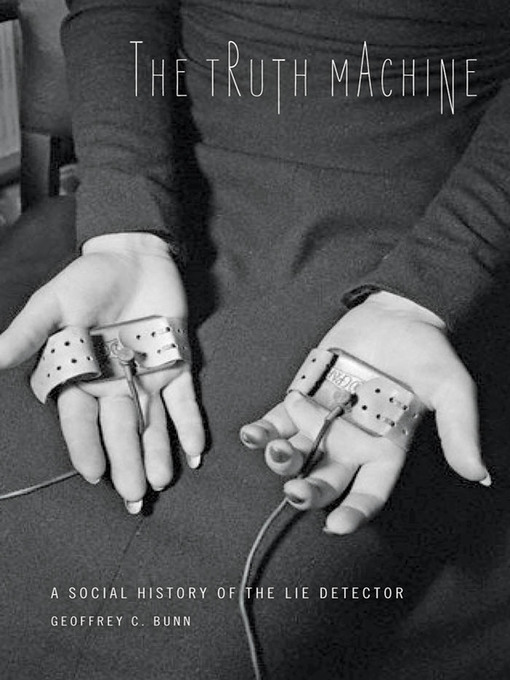How do you trap someone in a lie? For centuries, all manner of truth-seekers have used the lie detector. In this eye-opening book, Geoffrey C. Bunn unpacks the history of this device and explores the interesting and often surprising connection between technology and popular culture.
Lie detectors and other truth-telling machines are deeply embedded in everyday American life. Well-known brands such as Isuzu, Pepsi Cola, and Snapple have advertised their products with the help of the "truth machine," and the device has also appeared in countless movies and television shows. The Charles Lindbergh "crime of the century" in 1935 first brought lie detectors to the public's attention. Since then, they have factored into the Anita Hill–Clarence Thomas sexual harassment controversy, the Oklahoma City and Atlanta Olympics bombings, and one of the most infamous criminal cases in modern memory: the O. J. Simpson murder trial. The use of the lie detector in these instances brings up many intriguing questions that Bunn addresses: How did the lie detector become so important? Who uses it? How reliable are its results? Bunn reveals just how difficult it is to answer this last question. A lie detector expert concluded that O. J. Simpson was "one hundred percent lying" in a video recording in which he proclaimed his innocence; a tabloid newspaper subjected the same recording to a second round of evaluation, which determined Simpson to be "absolutely truthful."
Bunn finds fascinating the lie detector's ability to straddle the realms of serious science and sheer fantasy. He examines how the machine emerged as a technology of truth, transporting readers back to the obscure origins of criminology itself, ultimately concluding that the lie detector owes as much to popular culture as it does to factual science.

